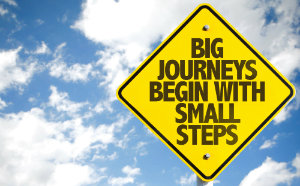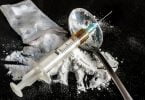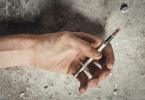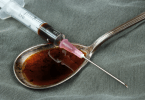Have you just completed your heroin rehab, and are looking to move on with your life?
First of all, congratulations on completing your rehab. To say rehab for a heroin addiction is an incredibly tough experience is an understatement. You should feel extremely proud of completing your program.
However, it’s important to understand that completing heroin rehab does not mean your work is done. Now, you need to stay sober during life after rehab. For many, this can be the most difficult part of your whole journey.
In order to succeed, you need to do more than just hope that you stay sober. You need a plan of action to cope with life after rehab. Here are the top 8 tips for doing so.
1. Upon Completing Rehab for Heroin Addiction, Take it Slow and Steady
 If there’s one thing you’ve probably learned by now, it’s that recovery is a process that takes time.
If there’s one thing you’ve probably learned by now, it’s that recovery is a process that takes time.
However, many people, when leaving heroin rehab, forget this. They think that because they’ve finished rehab, they’ll be able to jump right back into their lives before they were consumed by addiction.
Don’t fall into this faulty line of thinking. Just like every other stage of the recovery process, achieving a happy post-rehab life takes time and effort. Things are not just going to go back to normal at the snap of a finger.
Even if you feel like you’re ready to grab the bull by the horns, take things slowly. Try to focus on achieving one small goal at a time that will help get your life on track.
For example, you can dedicate a couple weeks to getting into an exercise routine, and then once that’s down pat, you can start seeking employment. Pacing yourself will help prevent you from getting overwhelmed with all of these new adjustments after your heroin addiction rehab experience.
2. Get a Sponsor When You Return Home from Heroin Addiction Treatment
Many people are under the misconception that in order to get a sponsor, you must enter the 12-step program.This is not the case. Everyone who leaves heroin rehab should seek a sponsor, regardless if you enter into a support group or not.
It’s extremely important to choose a sponsor you trust, whether it be a family member or a friend.

They should be someone you know you can call at the drop of a hat when you’re feeling overwhelmed.
Take time to think about who you want your sponsor to be, as they can be vital in your recovery process.
3. Find New Activities and Sober Friends After Heroin Rehab
Spending time with the same people you used to drink and do drugs with can be toxic for your heroin addiction recovery. Even though it can be hard to sever ties, it’s vital to your health. Removing these friends from your life is a key aspect of removing the temptation to relapse.
You can find sober friends through support groups, or, you can tag along with friends or family members who will stay sober with you and meet new friends through them.
 Another good way to find sober friends is to take up a new activity, whether it be hiking, playing an instrument, playing a sport, or volunteering.
Another good way to find sober friends is to take up a new activity, whether it be hiking, playing an instrument, playing a sport, or volunteering.
Upon finishing rehab for heroin addiction, new activities will not only put you in situations where it’s easy to make sober friends, it will also fill the time void that was previously occupied by using.
4. Start Exercising and Eating Healthy After Rehab for Heroin Abuse
You learned the need to create new healthy habits in heroin rehab, well now’s the time to use that tool. The mind and body are connected in more ways than we’ll ever understand. Exercising and eating healthy can help significantly when it comes to maintaining your willpower to stay clear of your heroin addiction.
Exercise can improve your energy levels, mood, self-confidence, and overall well-being. Plus, hitting the gym is another great way to meet new friends and develop a sober social circle.
 But of course, exercise needs to be coupled with a healthy diet. A healthy diet can help improve your mental health, which in turn can help you focus on staying sober from heroin.
But of course, exercise needs to be coupled with a healthy diet. A healthy diet can help improve your mental health, which in turn can help you focus on staying sober from heroin.
Try to eat a diet rich in fruits, vegetables, and lean proteins, and remember to drink plenty of water.
5. After Heroin Rehab, Check In With Friends and Family
 You likely hurt a lot of loved ones during the throws of your addiction. After heroin rehab, it’s time to make amends with those you hurt. Part of making amends involves reaching out to friends and family and seeing what’s expected of you during your this time.
You likely hurt a lot of loved ones during the throws of your addiction. After heroin rehab, it’s time to make amends with those you hurt. Part of making amends involves reaching out to friends and family and seeing what’s expected of you during your this time.
It’s not enough to simply say you’re sorry. You need to ask what your friends and family what they need from you and how they expect you to behave moving forward.
If your heroin addiction started when you were young, and you’re now in your late 20s or 30s, then it’s likely that life is quite different now from when you were last sober and your loved ones have different expectations for their relationship with you.
Checking in with all your loved ones individually will make a huge difference in staying on the straight and narrow.
6. Helping Someone Else after Heroin Rehab Helps You
During rehab, you spent a lot of time focusing on yourself and your own needs. Now that you’re out of rehab for heroin abuse, you should try to shift some energy into helping others. In fact, research suggests that helping others can actually help you maintain your own sobriety.
 If you’re in the beginning stages of post-rehab, this could be as simple as helping someone with a household repair or being a shoulder to cry on for a friend.
If you’re in the beginning stages of post-rehab, this could be as simple as helping someone with a household repair or being a shoulder to cry on for a friend.
As you progress through your sobriety and feel more confident, you may want to look into serving as a sponsor for someone who is newly sober.
7. After Rehab for Heroin, Watch Out for Signs of Relapse
Being aware of the harsh truth that heroin relapse is not only possible but likely is vital to coping with life after heroin rehab. In fact, 40 to 60 percent of adults experience at least one relapse. Relapsing is nothing to be ashamed of. If it happens, it’s just part of recovery.

Strong feelings, whether positive or negative, can often trigger a relapse. Make a conscious effort to recognize these feelings and to have a plan of action when they overwhelm you. This could mean visiting a sober friend or seeing a therapist.
8. Following Heroin Rehab, Figure Out Your Goals in Life
 One of the best ways to ensure recovery from heroin is to figure out your purpose in life. Make a list of goals and create a plan of action to go about achieving them.
One of the best ways to ensure recovery from heroin is to figure out your purpose in life. Make a list of goals and create a plan of action to go about achieving them.
Start with small goals and then go big. Keep a progress report. Two steps forward, one step back. Two steps forward…
Remember, your future is a blank slate. It is up to you and you alone to decide where it leads.
Are You Ready to Begin Your Life After Heroin Rehab?
By following these tips, you will set your self up for success on your road to heroin addiction recovery.
With the right mindset and focus, you’ll soon be leading a happier life than you could have ever imagined.

















